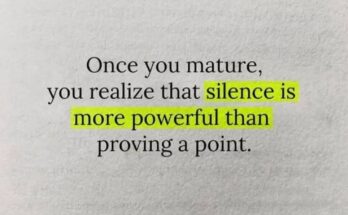Sex and love are two of the most profound and complex aspects of human relationships. While they are often intertwined, they can exist independently, creating a broad spectrum of experiences. Sex is a physical act, driven by biological and emotional desires, while love is a deep emotional bond that connects two people on multiple levels—mentally, emotionally, and sometimes spiritually. However, when sex and love are combined, they can create one of the most fulfilling and meaningful connections between individuals.
In this discussion, we will explore the differences between sex and love, their connections, emotional impact, and cultural perspectives, as well as the ways they shape human relationships and personal well-being.
The Nature of Sex
Sex is a physical act that has both biological and emotional dimensions. It is driven largely by the body’s natural impulses, which are influenced by hormones and the evolutionary need to reproduce. The act of sex typically involves physical attraction, desire, and the release of sexual energy, all of which contribute to the experience of pleasure. However, sex is not merely about physical satisfaction. It can also hold emotional significance, particularly in intimate relationships where physical connection is intertwined with affection, trust, and vulnerability.
Sex is an essential part of human reproduction, but its role extends beyond procreation. In romantic relationships, sex can become a means of expressing desire and affection, reinforcing emotional bonds between partners. The experience of intimacy during sex fosters connection, not just through physical touch but also through the sharing of a personal, vulnerable moment. Many people find that sexual intimacy brings them closer to their partners, creating a unique space where affection, pleasure, and trust merge.
The emotional significance of sex can vary widely depending on the relationship. In some cases, sex may be experienced as a form of self-expression, a way to affirm one’s attractiveness and desirability. In others, it may be primarily about physical pleasure, with little emotional involvement. These variations are influenced by factors such as personal values, cultural norms, and the specific nature of the relationship. Sex, therefore, can range from a casual encounter to a deeply intimate experience, depending on the emotional context in which it occurs.

The Nature of Love
Love, by contrast, is an emotional bond that transcends the physical realm. It is a complex, multifaceted experience that encompasses a range of emotions, including affection, admiration, respect, and care. Love is not limited to romantic relationships but can exist between family members, friends, and even towards oneself. However, in the context of romantic love, it often involves an intense desire to connect with another person, emotionally and physically, on a long-term basis.
Romantic love is typically marked by feelings of attraction, trust, and a deep emotional investment in the well-being of the other person. Unlike sex, which can occur with varying degrees of emotional involvement, love requires a level of commitment and emotional connection. It is built on shared experiences, mutual understanding, and an ongoing effort to nurture and grow the relationship. Love is often considered an enduring, evolving bond that deepens over time as two individuals navigate the challenges and joys of life together.
Love also involves the development of emotional intimacy, where partners share their inner worlds—fears, dreams, vulnerabilities, and hopes. This emotional closeness is what differentiates love from mere infatuation or physical attraction. It allows individuals to feel truly seen and understood by their partners, creating a sense of safety and belonging. In healthy, long-lasting relationships, love provides a foundation of support and care, regardless of external circumstances or challenges.
The Connection Between Sex and Love
Sex and love are often closely intertwined in romantic relationships. While love provides the emotional foundation for deep intimacy, sex can act as a physical expression of that connection. In this sense, sex becomes more than just a physical act—it becomes an integral part of how partners connect emotionally. Many people experience their most profound moments of intimacy when sex is accompanied by love, as it creates a space where they can express both their physical and emotional selves.
One key reason for this connection is the release of chemicals in the brain during sex, such as oxytocin and dopamine, which foster feelings of bonding, trust, and pleasure. These chemicals, particularly oxytocin, are often referred to as the “love hormone” because they promote attachment and emotional closeness. When sex occurs within a loving relationship, the emotional connection is deepened by the shared experience of physical pleasure and intimacy. The act of sex can help reinforce the emotional bond between partners, creating a feedback loop where love and sex feed into one another.
In a loving relationship, sex often becomes a way to communicate affection and desire. It can strengthen emotional bonds, foster closeness, and affirm the relationship’s value. Partners who love each other may seek to please each other physically, creating a mutual exchange of care and attention. The emotional trust in a loving relationship allows individuals to feel more comfortable and vulnerable during sex, which often leads to more fulfilling experiences.

The Differences Between Sex and Love
Despite their connection, sex and love are not the same. Sex, while it can be emotionally significant, is ultimately a physical act, driven by biological impulses and desires. It can be enjoyed without emotional attachment, and it is not always an indicator of love. Casual sex, for example, often lacks the emotional depth and commitment that characterizes love. In these instances, sex may be motivated by physical attraction, pleasure, or the desire for novelty, rather than the emotional connection that love entails.
Love, on the other hand, is primarily emotional and relational. It is not contingent on physical attraction or sexual desire, although these may enhance the emotional connection in romantic relationships. Love is built on emotional intimacy, trust, and commitment, and it often persists even when physical attraction or sexual activity fades. Unlike sex, which may fluctuate based on desire and external circumstances, love is generally more enduring and stable.
The nature of commitment is another key difference. Love often involves a conscious choice to prioritize the other person’s well-being, sometimes making sacrifices or compromising in the best interest of the relationship. This commitment goes beyond physical attraction and involves emotional and psychological investment. In contrast, sex can be an expression of desire that does not necessarily involve such long-term commitment or sacrifice.
The Role of Sex and Love in Personal Fulfillment
Both sex and love play important roles in personal fulfillment, though they contribute in different ways. Love provides emotional stability and connection, allowing individuals to feel supported, cared for, and understood. It fosters a sense of belonging and partnership, creating a foundation for personal growth and shared experiences. Healthy love relationships often lead to greater life satisfaction, providing emotional security and companionship.
Sex, on the other hand, can be a source of personal pleasure, self-expression, and intimacy. Sexual activity, especially when it is part of a loving relationship, can promote physical well-being, enhance self-esteem, and improve overall happiness. It can also serve as a way to deepen emotional bonds and express affection. When sex is healthy and consensual, it has the potential to create powerful moments of connection, vulnerability, and joy.
The key to personal fulfillment often lies in the balance between sex and love. While both elements contribute to human connection and well-being, they must be understood and nurtured in ways that respect both the emotional and physical needs of individuals. The healthiest relationships are those in which love and sex complement one another, creating a dynamic and fulfilling partnership where both emotional and physical intimacy are valued.

Conclusion
Sex and love are two of the most powerful and complex aspects of human intimacy. While they share a deep connection, they are distinct in their nature and impact on our relationships. Sex, as a physical act, can be an expression of desire, pleasure, and affection, while love, as an emotional bond, provides the foundation for trust, vulnerability, and long-term connection. Both are essential to human experience, and when experienced together, they can create deep, meaningful intimacy. By understanding the distinctions between sex and love and recognizing their interplay, individuals can cultivate more fulfilling, authentic relationships that honor both emotional and physical connection.


